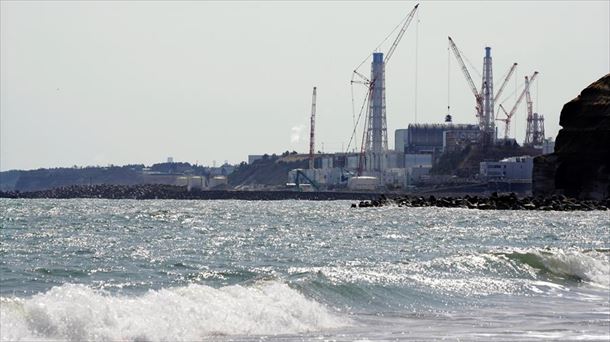Fukushima water, an unresolved problem affecting all of Japan 12 years after the nuclear crisis
15,900 people died and 2,523 disappeared after the earthquake and tsunami that devastated the northwest of the country in 2011. The Japanese government has approved the discharge into the Pacific Ocean of contaminated water from the Fukushima nuclear power plant.
-
listen to the page
listen to the page -
Euskaraz irakurri
-

Image of the Fukushima nuclear power plant in Japan. Photo: EFE
- telegram
- tweet
-
Send
- copy link
Euskaraz irakurri: Fukushimako ura, Japan osoari eragiten dion konpondu gabeko arazoa, krisi nuklearretik 12 urtera
Fukushima commemorates this Saturday the twelfth anniversary of the earthquake and tsunami which devastated the northeast of the country and caused the nuclear crisis from which it is still recovering and reminded the nation that the problem of the discharge of water from the damaged plant “affects all of Japan.”
“I know that there are voices of concern not only in Japan and Fukushima, but in more parts of the world. What we have been telling the central government is that this It’s not a Fukushima problem, but a Japan-wide problem.“, explained the governor of the prefecture, Masao Uchibori, during a press conference at the Foreign Press Center of Japan (FPCJ, in English).
Twelve years after the natural disaster, which caused 15,900 deaths and 2,523 disappearancesFukushima continues to face “significant challenges”, including the future discharge of treated water from the Fukushima Daiichi nuclear power plant into the Pacific Ocean, which has generated controversy among the local population and neighboring countries.
“Recovery and reconstruction after a nuclear accident It is a situation for which we had no precedents and it is very difficult. What we ask of the government is to act responsibly and share science-based information,” Uchibori added.

Image of the Fukushima nuclear power plant in Japan. Photo: EFE
The governor’s reaction comes after the Japanese government approved in early January a revised plan to dump the contaminated water into the Pacific in the coming months and treated that accumulates in the plant. This water is currently treated in circuits called ALPS (Advanced Liquid Processing System) to remove 62 types of radioactive materials, with the exception of tritium.
Residents of the area and several Pacific countries have protested against this decision, alleging that the data provided by Japan “are insufficient” in order to be able to evaluate the effects it will have on human health and the marine environment.
A fading memory
A decade after the disaster, the region is also concerned that the memory of it will fade following the recent announcement of a change in government policy regarding the power plant reactivation and the extension of the useful life of its reactors beyond 60 years.
“For the past 12 years, we have been fighting against this set of disasters, but we feel that the memory of what happened has started to fade,” Uchibori said, referring to the physical effects of the earthquake and tsunami, the nuclear disaster and also the bad reputation that has been associated with the area.
In recent years, several countries such as the United States or the United Kingdom have lifted sanctions regarding the import of products from Fukushima and the region is also making efforts to develop its agricultural and livestock sector.
However, more than 300 square kilometers of land in six towns in this prefecture, including Katsurao, Okuma and Futaba, remain subject to the classification of “difficult return area”and his rehabilitation remains uncertain.
Source: Eitb
Ricardo is a renowned author and journalist, known for his exceptional writing on top-news stories. He currently works as a writer at the 247 News Agency, where he is known for his ability to deliver breaking news and insightful analysis on the most pressing issues of the day.











